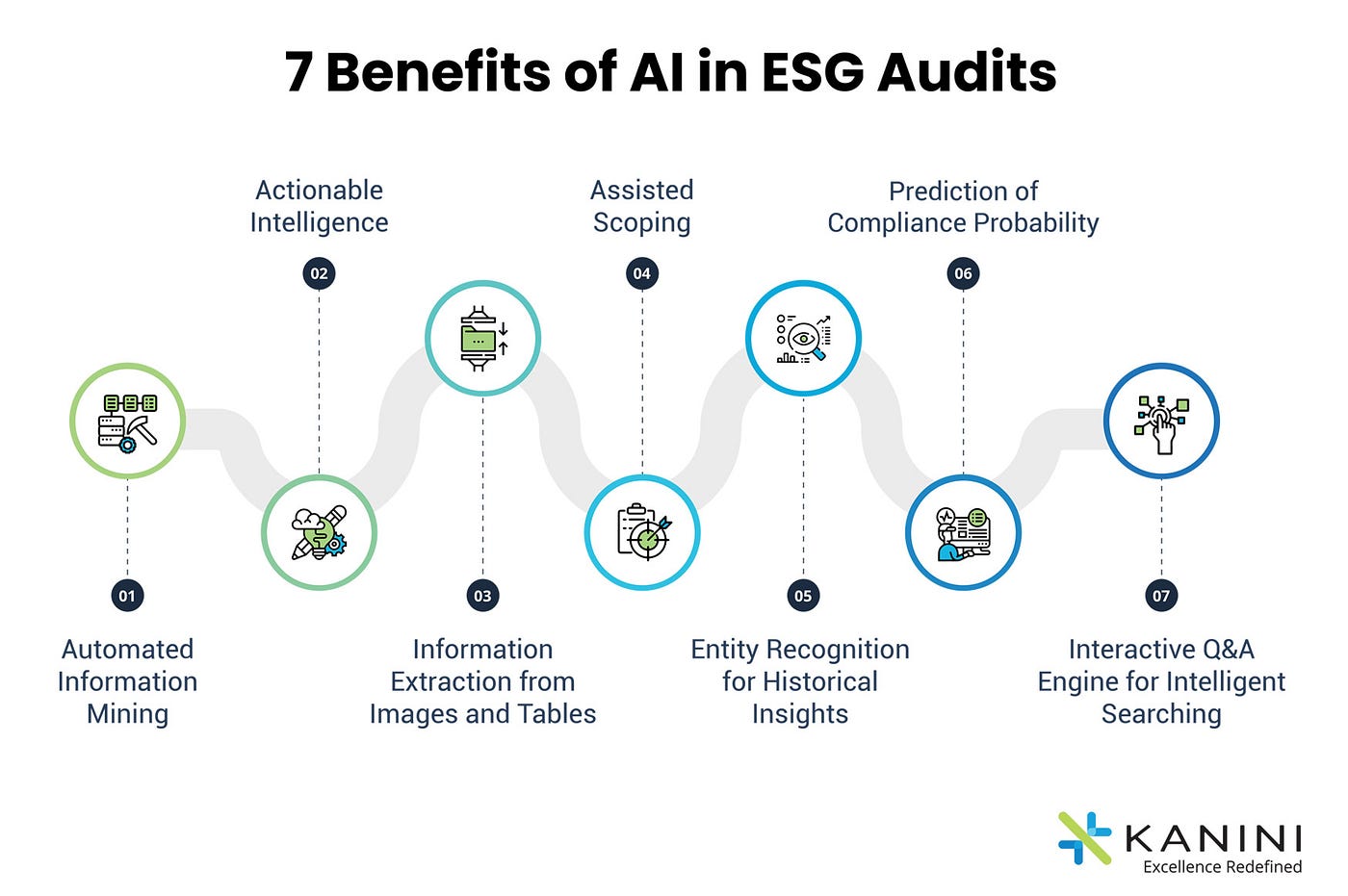Understanding ESG Audits
What is an ESG Audit?
ESG audits systematically evaluate a company's adherence to environmental, social, and governance criteria:
- Environmental: Assesses a company's impact on the environment, including carbon footprint, waste management, and sustainability efforts.
- Social: Evaluates relationships with employees, suppliers, customers, and communities, including labor practices and diversity.
- Governance: Examines internal policies, risk management, executive compensation, and ethical conduct.
Importance of ESG Audits
- Demonstrates a company's commitment to ethical practices and sustainability.
- Uncovers potential problems and areas for improvement.
- Ensures adherence to relevant laws and regulations.
- Improves a company's image among customers, investors, and potential hires.
- Attracts investors who prioritize social responsibility.
ESG and Other Audits
ESG audits focus on environmental, social, and governance criteria, while traditional audits might focus on financial performance, operational efficiency, or specific regulations. ESG audits have a broader scope, considering impacts on all stakeholders, not just financial health.
Common Problems with ESG Audits
- Collecting accurate and comprehensive data can be challenging.
- Lack of standardized criteria makes comparison difficult.
- Conducting thorough ESG audits requires significant time and expertise.
Why CollabAuditAI?
- Leverage AI-driven tools for precise and comprehensive data analysis, minimizing errors and ensuring thorough evaluations.
- Automate and simplify audit workflows, saving time and reducing manual effort, making ESG audits more efficient.
- Stay updated with regulatory standards and ensure adherence with built-in compliance features and real-time updates.
- Benefit from dedicated support and expert guidance to maximize the value of our tools and ensure successful ESG audits.

Case Study
Background
A large investment management firm recently underwent an Environmental, Social, and Governance (ESG) audit. The audit process was facilitated by a sophisticated data and workflow management tool designed to streamline ESG auditing procedures.
Objective
The main goal of the ESG audit was to evaluate the firm's compliance with ESG standards, pinpoint areas for improvement, and offer recommendations to boost their sustainability practices within investment management. The audit also entailed reporting standards are met under Generally Accepted Accounting Principles (“GAAP”) and had certain regulatory components involved including ensuring fund classification was accurate.
Implementation of the Data and Workflow Management Tool
To ensure a thorough and efficient audit, the audit team used a versatile tool that offered several key functionalities:
- Data Collection and Integration: This tool enabled seamless integration of the firm's diverse data sources, including investment portfolios, stakeholder reports, and governance documents.
- Workflow Management: It helped create a structured audit workflow, ensuring all audit steps were meticulously followed and documented.
- Real-Time Monitoring and Reporting: The tool provided real-time monitoring of audit progress and generated comprehensive reports, allowing both the audit team and the firm to track key performance indicators and address issues promptly.
- Adherence to Standards: Ensured compliance with ESG reporting standards and relevant regulations, facilitating a more transparent and accountable audit process.
Results
The use of the data and workflow management tool led to a more streamlined and efficient audit process. The firm was able to quickly identify and address areas needing improvement, enhance their ESG reporting, and demonstrate a strong commitment to sustainability and ethical practices.
